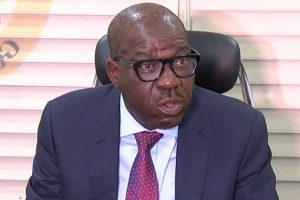Tayo OLU,
Nigeria, Africa’s largest oil producer, has long grappled with the irony of exporting crude oil while relying heavily on imported refined fuels. The situation, driven by the near-inoperable state of its domestic refineries, has hampered economic growth and exposed the nation to the vulnerabilities of global oil price fluctuations.
This challenge led the Nigerian National Petroleum Company Limited (NNPCL) under the leadership of Group Chief Executive Officer (GCEO), Mallam Mele Kyari, to commence an ambitious gas development strategy. A major proof of this drive was the signing of a $741 million contract between the NNPCL and Daewoo Engineering and Construction to rehabilitate the idled 110,000-barrel-per-day Kaduna Refinery.
The quick-fix maintenance contract was approved by the Federal Executive Council in 2021 as part of a $1.4 billion package to repair the Kaduna and Warri refineries. The urgency stemmed from NNPC’s commitment to strengthening Nigeria’s energy security.
The contract, while significant, serves as just one piece of a broader strategy of the Kyari-led NNPCL focused on unlocking Nigeria’s gas potential and establishing itself as a global supplier of clean and affordable energy.
The Kaduna Refinery rehabilitation project, targeted for completion in 2024, aims to restore production to 60 per cent capacity and significantly improve Nigeria’s fuel security. This, coupled with the ongoing upgrades of the Warri and Port Harcourt refineries, signifies a multi-attack approach towards ending dependence on imported fuels. Additionally, NNPC’s partnership with Dangote Industries for a stake in their upcoming 650,000 barrel-per-day refinery is expected to further boost domestic refining capacity and reduce reliance on external sources.
Restoring the Kaduna Refinery is more than just a technical overhaul; it represents a multifaceted approach to unlocking economic benefits for Nigeria, including increased revenue generation, reduced demand for foreign currency, a new supply of raw materials to industries, enhanced employment opportunities, and advancements in technology transfer.
Unlocking Gas Bonanza
Despite this potential, Nigeria’s vast gas resources still present an untapped opportunity to position the nation as a global supplier of clean and affordable energy. Nigeria flares an estimated 260 billion cubic feet of natural gas annually, which could be channelled into LNG and domestic gas-to-power projects.
NNPCL aims to fully harness these opportunities under its “Decade of Gas” initiative launched in 2021. Kyari’s leadership has led to significant strides in this direction, evident in NNPC’s agreements for floating LNG projects.
Beyond immediate fuel security concerns, the Kyari-led NNPCL is actively pursuing strategies to monetize Nigeria’s estimated 203 trillion cubic feet (Tcf) of proven gas reserves and unlock the potential of another 600 Tcf in unproven resources. This ambition is evident in several key initiatives, including:
Floating LNG (FLNG) Projects: The NNPCL in August 2023 partnered with both Golar LNG and UTM Offshore for the development of FLNG projects. These innovative facilities will enable gas processing and export directly from offshore fields, offering a faster and more cost-effective solution compared to traditional onshore LNG plants.
Strategic Partnerships: Recognising the expertise and financial resources needed for large-scale gas development, the current NNPCL leadership has actively engaged with international players like South Korea’s Daewoo E&C consortium. These collaborations will unlock foreign direct investment, technological advancements, and access to new markets.
In January, Kyari personally led the NNPCL team to further discussions in Seoul, South Korea, with a consortium led by Daewoo E&C. The discussions were aimed at deepening NNPCL’s drive to tap into the nation’s gas resources and collaborate on opportunities for greenfield and other gas development projects. The collaboration can leverage South Korea’s expertise in the LNG sector and boost Nigeria’s gas monetization efforts.
Additionally, the recent commissioning of the 23,000 cubic meters of ultra-modern Liquefied Petroleum Gas (LPG) Carrier by Temile Development Company, in collaboration with NNPC, further underscores the commitment to cleaner energy in Nigeria.
It was also a demonstration of NNPCL’s commitment to encouraging domestic participation in the gas sector. Notably, in January 2024, NNPCL partnered with Temile Development Company to co-finance the construction of a state-of-the-art Liquefied Natural Gas (LNG) processing facility within Nigeria. The collaboration not only strengthens domestic LPG supply and distribution but also showcases NNPCL’s dedication to building strong partnerships with indigenous players, promoting technological advancements, and contributing to the overall growth of the Nigerian gas industry.
Positioning For Clean Energy Future
The global energy landscape is undergoing a significant shift towards cleaner fuels and by prioritising gas development, the NNPCL is not only addressing domestic energy needs but also positioning Nigeria as a reliable supplier of clean energy in the international market. The move aligns with the national goals of reducing dependence on biomass and promoting cleaner energy sources for domestic consumption.
The urgency of harnessing Nigeria’s gas resources was further underscored by the revelation that Nigeria lost $1 billion (N891 billion) to gas flaring in 2023, according to data released by the National Oil Spill Detection and Response Agency (NOSDRA) (HYPERLINK: https://nosdra.gasflaretracker.ng/) . This staggering figure, representing a 27.03 per cent increase compared to 2022, highlights the immense financial and environmental cost of not effectively utilising this valuable resource.
By transitioning towards a gas-focused strategy, NNPCL aims not only to unlock economic opportunities and diversify the national energy mix but also to curtail the damaging practice of gas flaring and contribute to a more sustainable future for Nigeria.
However, Nigeria’s path towards self-sufficiency and a gas-driven future is not without challenges. Security concerns, particularly pipeline vandalism, have hampered previous efforts to boost gas production and exports. Additionally, attracting investment for large-scale projects requires a stable operating environment.
Despite these challenges, the potential benefits are undeniable. By addressing security concerns, improving infrastructure, and creating a conducive investment environment, Nigeria can unlock the full potential of its gas resources which in turn will lead to economic diversification, job creation, and a transition towards a cleaner energy mix.
The Daewoo deal symbolises a significant step forward in NNPC’s multifaceted strategy to unlock Nigeria’s gas potential. By focusing on revitalising domestic refineries, exploring innovative solutions like FLNG, and fostering strategic partnerships, NNPC is paving the way for a future where Nigeria is no longer an importer, but a major exporter of clean and affordable energy, contributing to both national development and the global energy transition.
Tayo writes from Ondo State
Source
Disclaimer: No copyright infringement intended. All rights and credits reserved to respective owner(s).




















Add Comment